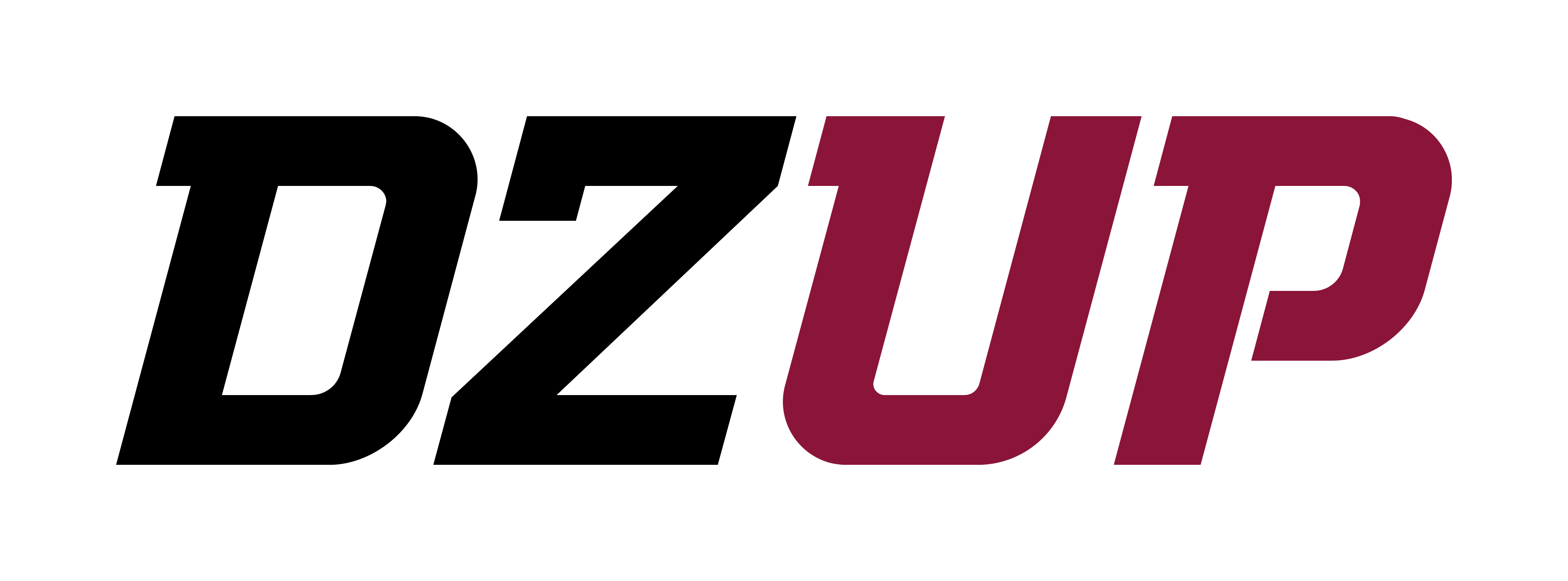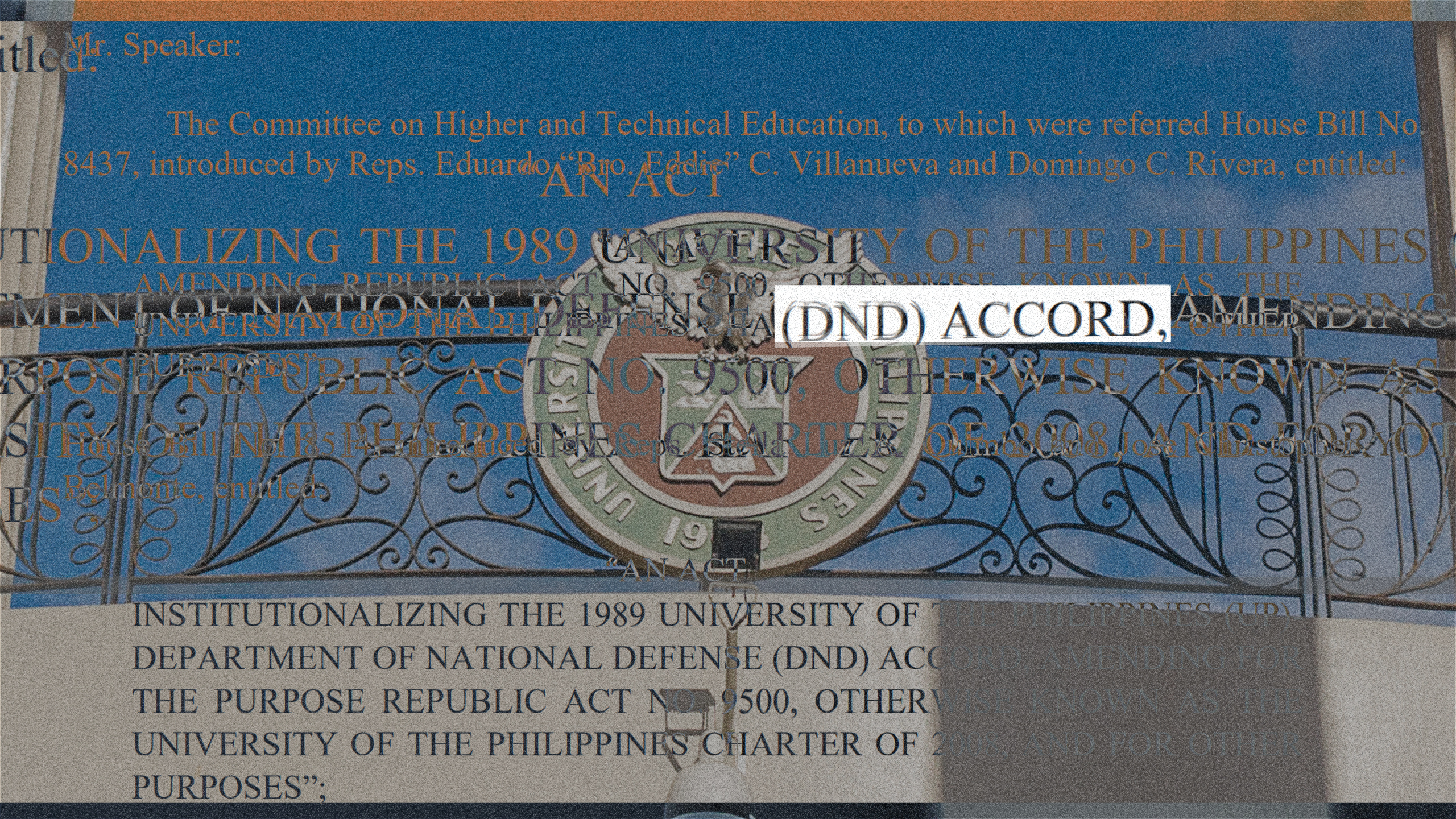The House of Representatives approved the proposed institutionalization of the 1989 University of the Philippines (UP) – Department of National Defense (DND) accord on second reading through a voice vote on Sept. 15.
House Bill 10171 calls for the amendment of the 2008 UP Charter (R.A. 9500) to bar unsolicited intrusions of state security forces across all constituent units of the UP System nationwide.
The bill requires the police, military, and law enforcement agencies to secure the approval of the UP President, a constituent unit’s Chancellor, or a college’s Dean before conducting any operations on-campus, excluding urgent pursuits and special emergency cases.
During the May 17 hearing, UP President Danilo Concepcion recognized the progressive steps taken to constitutionalize the accord.
“The University of the Philippines and the UP community strongly supports the proposed law […] seeking to incorporate into the UP Charter the principles of academic freedom embodied in the UP-DND [accord],” Concepcion said.
“Hindi lamang po ito isang agreement, ito po ay deklarasyon ng ating gobyerno na […] yung mga commitments nila doon ay essential ingredients para matamo ng UP ang academic freedom.”
Former UP Diliman University Student Council Chairperson Froilan Cariaga also asserted that police and military intrusions into the University were perceived as threats to security by the student body.
DND Chief of Legal Affairs Norman Daanoy defended the accord’s abrogation, citing how it was being misused in denying the AFP and PNP entry to the campus premises.
“[The UP-DND accord] is being used as propaganda to confuse or prohibit law enforcers in conducting law enforcement operations in the campuses […] nationwide,” he stressed.
Notable provisions
To safeguard the security and welfare of the UP community, HB 10171 restricts custodial investigations and search and arrest warrant delivery to any student, faculty, or employee without the consent of the aforementioned University officials.
That said, UP authorities are obliged to provide essential assistance to law enforcing bodies upon their request within University premises.
On the subject of protests held in the University, the bill moves to prohibit any form of police and military intervention in peaceful assemblies and similar events.
In addition, the bill seeks to fortify the University’s emergency response teams by mandating them to devise crime prevention and response measures as part of their principal duties.
UP administrators will be tasked to ensure the regular procurement and installation of closed-circuit television cameras and other modern crime prevention devices on strategic locations within the territorial jurisdiction of the campuses.
Compulsory coordination with the Philippine National Police (PNP) through joint training programs and resource sharing is also prescribed. This will concretize future courses of action on the long-term mission of heightening campus security.
Officials from the Armed Forces of the Philippines (AFP), PNP, DND, UP Executive Committee, and Board of Regents will comprise a Joint Monitoring Group set to convene at least twice a year to ensure the proactive enactment of the accord.
Corresponding sanctions ranging from twenty-four (24) month salary equivalent fines to employment termination are in place for any public official found guilty of violating any provision listed in this proposed legislation.
Decades-long history
On June 30, 1989, late UP President Jose Abueva and then-Defense Secretary Fidel V. Ramos signed a groundbreaking agreement between the two parties — one that served as an indelible bastion of academic freedom in the country’s national university.
The accord enumerated the foundational guidelines and limiting provisions on conducting police and military operations in all constituent units of the UP System.
Said agreement is popularly viewed as a successor to the 1981 Soto-Enrile accord, which sought to protect the studentry from state security forces compelled to silence political activists and government dissidents during the Marcos regime.
More than two decades after the UP-DND accord was signed to fruition, the Duterte administration spearheaded the unilateral abrogation of the agreement.
Defense Secretary Delfin Lorenzana divulged in a Jan. 15 letter to UP President Danilo Concepcion that “a number of UP students have been identified as members of the Communist Party of the Philippines/New People’s Army (CPP/NPA).”
Moreover, recruitment activities by terror groups were also claimed to be discreetly taking place. This alleged regular occurrence in the University prompted the DND to take dire steps in terminating the accord immediately.
Despite denying claims of involvement, President Duterte himself launched public tirades on student activism in UP and raised the possibility of major budget cuts if such activities persist.
UP Diliman Chancellor Fidel Nemenzo released an official statement on the abrogation of the UP-DND accord, adamantly stressing how “claims about clandestine campus recruitment for terrorist organizations are not sufficient grounds to cancel the [a]greement.”
After talks between UP and DND emerged, a Technical Working Group (TWG) was formed to address grievances from both parties and further review the pact to lay down future plans.
One step forward
UP student-leaders welcomed the steadfast progress of HB 10171 in Congress as the first of many steps needed to devoutly uphold academic freedom in the University.
For Samantha Chomi, Broadcast Media Arts and Studies representative of the UP College of Mass Communication Student Council, the persistent amplification of the University’s calls to defend the accord is a testament to the resolute stance of the UP community.
“This is a strong manifestation sa kung anong nagagawa ng continuous and collective action ng buong UP community — students, councils, faculty and workers, and we shouldn’t stop here.” Chomi said.
“Now more than ever, kung kailan mas tumitindi ang panawagan natin para sa ligtas na pagbabalik-eskwela, dapat din na lalong palakasin ang panawagan to institutionalize the accord and hold its violators accountable para sa pambubusal at pamamasista nila sa loob at labas ng pamantasan.”
Upon receiving committee level approval on Jun. 2 and second reading approval on Sep. 15 from the House Committee on Higher and Technical Education, HB 10171 is slated for its third reading at an unconfirmed date as of writing. DZUP

